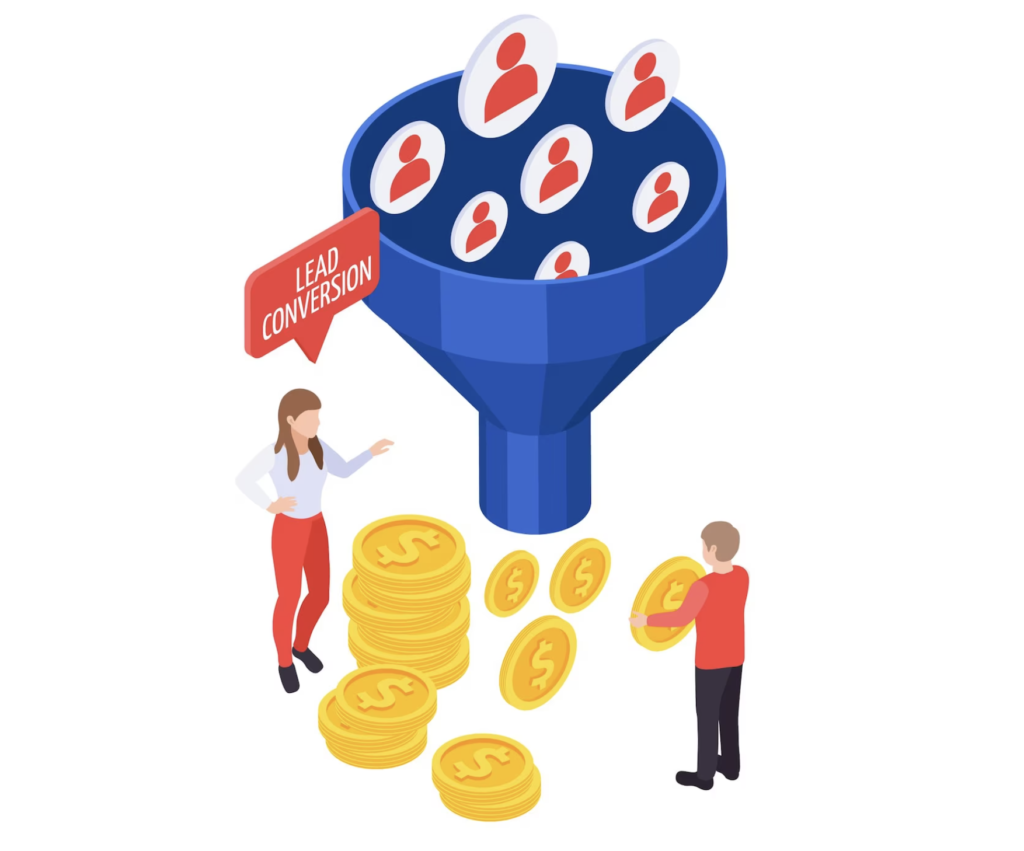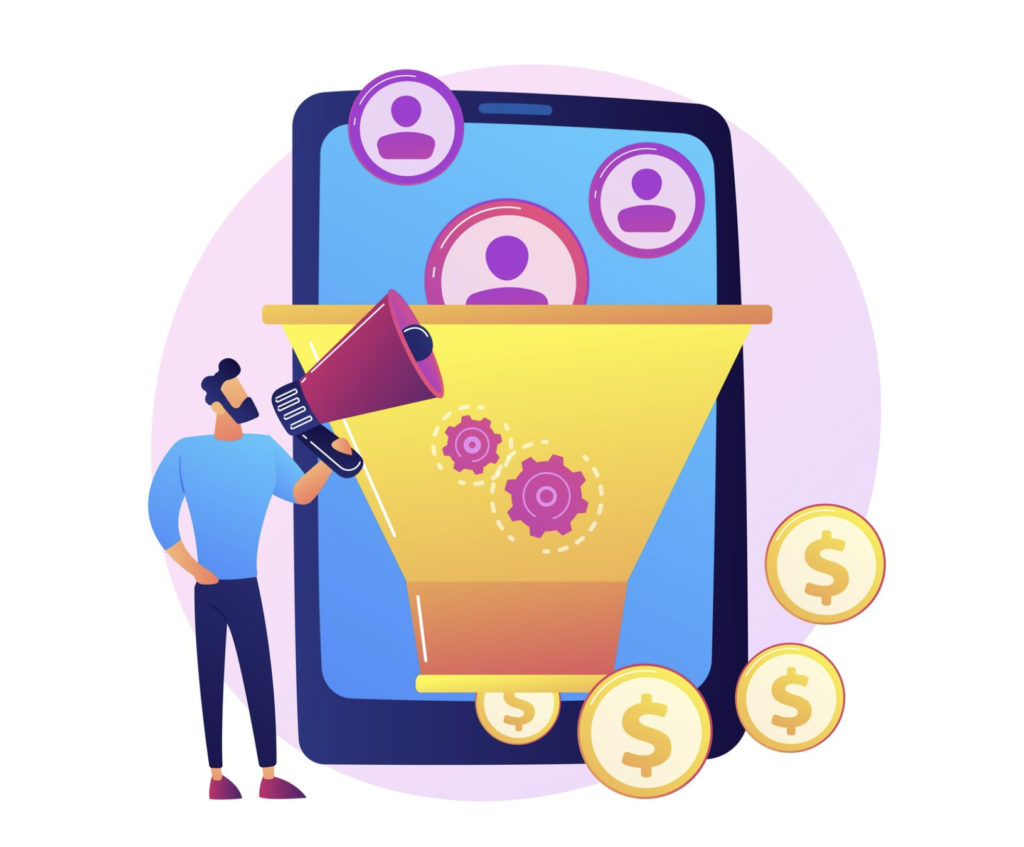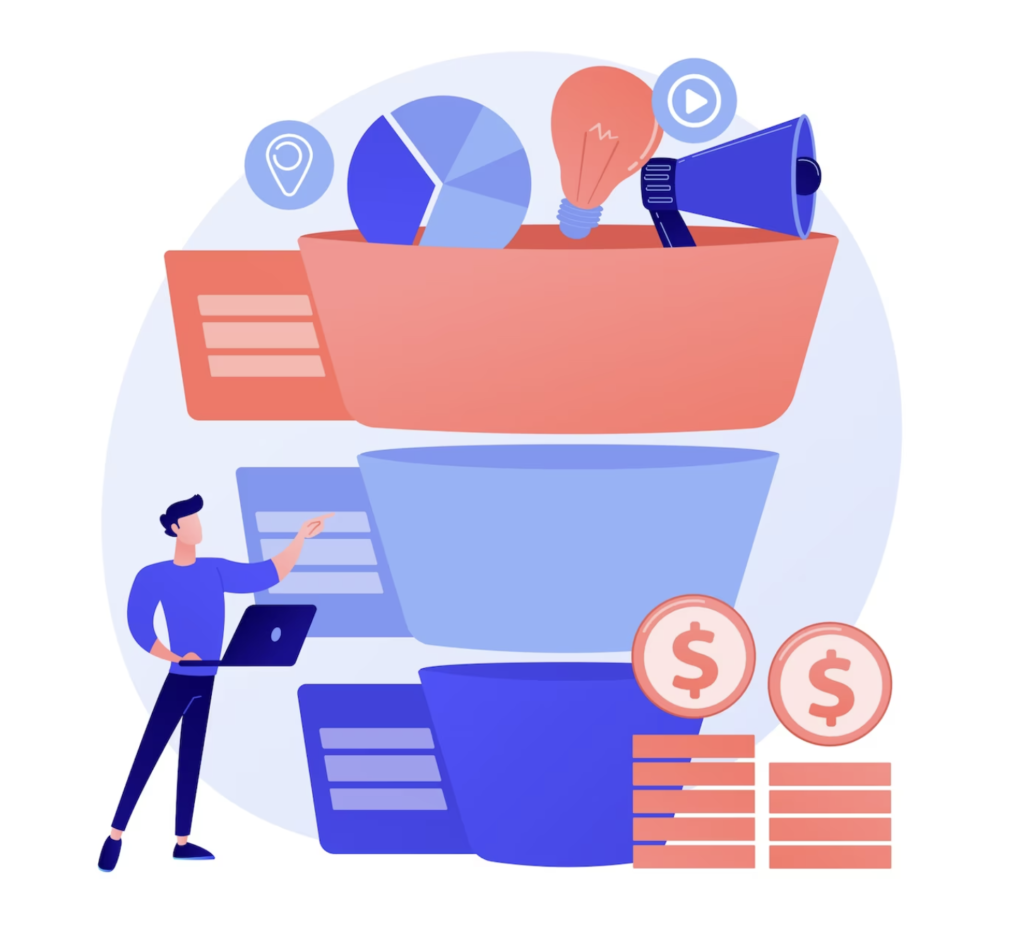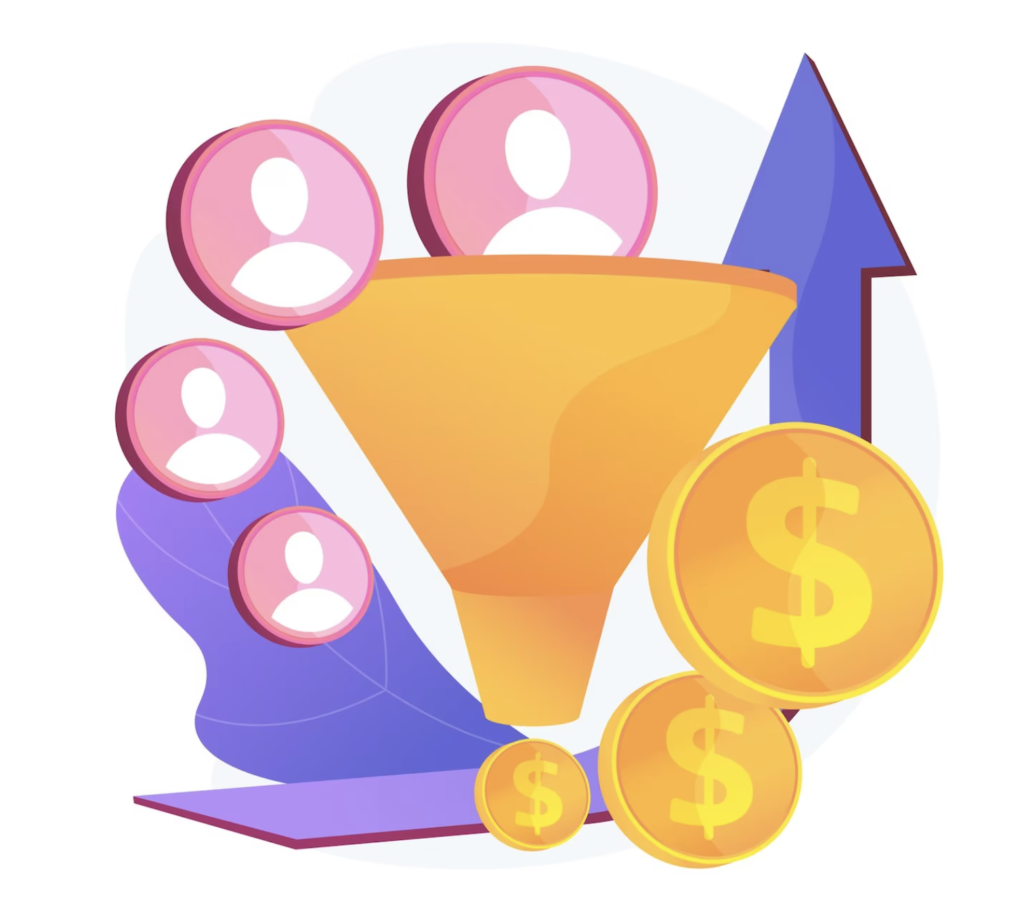Are you tired of chasing after leads and making cold calls? Inbound sales are the answer you’ve been looking for.
With this methodology, you can attract potential customers who are already interested in what you have to offer. By initiating contact, engaging in consultative conversations, and presenting tailored solutions, you can build trust and position yourself as a trusted resource.
Inbound sales tactics increase your chances of being the first contact point and closing more deals. Say goodbye to outbound sales and hello to inbound success.
Key Takeaways
- Inbound sales focus on attracting prospects interested in your product, while outbound sales involve reaching out to potential customers.
- Inbound sales tactics involve providing value before pitching products or services, while outbound sales rely on cold calling and emails.
- Inbound sales are more effective for creating awareness and generating leads, while outbound sales can quickly generate interest in new products or services.
- Inbound sales statistics show that personalized content and insights and focusing on delivering value during calls lead to higher success rates.
Table of Contents
- Key Takeaways
- The Inbound Sales Methodology
- Understanding Inbound Sales Vs Outbound Sales
- Pros and Cons of Inbound Sales
- Implementing Inbound Sales Techniques
- Measuring Success in Inbound Sales
- The Four Pillars of Inbound Sales
- Why You Should Use Inbound Sales Tactics
- The Challenges of Outbound Sales
- Why Not Combine Inbound and Outbound Sales?
- Frequently Asked Questions
- How Can Inbound Sales Help Build Trust and Credibility With Potential Customers?
- What Are Some Key Steps in the Inbound Sales Process?
- How Can Technology Be Leveraged in Inbound Sales for Lead Management?
- What Are Some Effective Techniques for Implementing Inbound Sales?
- What Metrics Can Be Used to Measure Success in Inbound Sales?
- Conclusion

The Inbound Sales Methodology
In the inbound sales methodology, you engage with potential customers by providing valuable information and solutions to their needs. This approach focuses on attracting prospects who have shown interest in your product or service rather than cold calling or reaching out to random contacts.
Inbound sales encourage buyers to provide information, allowing you to tailor your messages and offerings specifically to their needs. This personalized approach builds trust and positions you as a trusted resource in the eyes of your prospects.
Unlike outbound sales, which rely on interrupting potential customers with unsolicited pitches, inbound sales is about creating awareness and generating leads through valuable content and marketing efforts.

Are you a founder struggling to close your first million in revenue? Darren, CEO of Rampd, has a proven framework that breaks down the sales process into manageable steps, giving you the confidence to guide prospects through a predictable buying journey.
His approach has helped numerous founders grow their revenue by 300% yearly. Don’t miss out on this opportunity to transform your sales process. Book a call with Darren today and start your journey towards your first million.
Understanding Inbound Sales Vs Outbound Sales
Outbound sales involve reaching out to potential customers through cold calls, trade shows and purchased contact lists. While outbound sales can effectively generate interest in new products or services, inbound sales focus on attracting prospects who have shown interest in your product.
Inbound sales encourage buyers to provide information, eliminating assumptions and increasing the chances of being the first point of contact. By implementing inbound sales tactics, you can build trust and position yourself as a trusted resource early on.
The right mix of inbound and outbound tactics is necessary for company growth. To use outbound tactics in an inbound way, define buyer personas, analyze leads’ digital body language, align sales and marketing operations, and streamline the handoff process between marketing and sales.
Incorporating both inbound and outbound strategies will help you maximize your outreach efforts and achieve success in your sales methodology.

Pros and Cons of Inbound Sales
When considering the pros and cons of using inbound sales tactics, you should focus on building trust and positioning yourself as a trusted resource early on in the sales process.
Pros of Inbound Selling:
- Cost-Effective: Inbound sales strategies, such as content marketing and search engine optimization, often require less investment than traditional advertising methods and can yield a higher return on investment over time.
- Builds Trust: By providing valuable content and solutions to potential customers’ problems, businesses can establish themselves as industry experts and build trust with their audience.
- Higher Conversion Rates: Leads generated through inbound methods are often more qualified and more likely to convert, as they’ve already shown interest in your content or solutions.
- Sustainable Growth: Inbound strategies, like content creation, continue to attract leads long after they’re implemented, ensuring a steady flow of potential customers.
- Personalized Approach: Inbound sales allow for a more tailored approach to each lead, as you can segment and target based on specific behaviors, interests, and stages in the buying journey.
- Improved Customer Relationships: Engaging content and meaningful interactions can lead to stronger, longer-lasting customer relationships.
- Adaptable: Inbound strategies can be easily adjusted based on analytics and feedback, ensuring that efforts are always optimized.
Cons of Inbound Selling:
- Time-Consuming: Building a robust inbound sales strategy, especially content creation and SEO, can be time-intensive before seeing significant results.
- Requires Expertise: Effective inbound marketing and sales require a deep understanding of various tools, platforms, and strategies, which might necessitate training or hiring specialists.
- Not Always Predictable: While inbound can generate a steady flow of leads, the exact number and timing can be unpredictable, especially when compared to some outbound methods.
- Competition: As more businesses adopt inbound strategies, standing out and capturing attention in a crowded digital space becomes more challenging.
- Dependent on Content Quality: Inbound sales’ success heavily relies on the quality of content. Poor content can deter potential customers and harm the brand’s reputation.
- Requires Continuous Effort: To maintain a strong online presence and stay relevant, continuous content updates, engagement, and optimization are necessary.
- Not Suitable for All Products/Services: In some niche markets or industries where customers aren’t actively searching for information or solutions online, inbound sales might not be as effective.
Inbound sales allow you to attract potential customers who have already shown an interest in your product or service. By providing valuable information and nurturing leads through the sales funnel, you increase the likelihood of converting them into customers.
Educating prospects and establishing trust are key components of the inbound sales methodology, which can lead to long-term customer relationships.
However, it’s important also to recognize that outbound sales tactics have their own benefits, such as quickly generating interest in new products or services.
Finding the right balance between inbound and outbound strategies is crucial for company growth.

Implementing Inbound Sales Techniques
Implementing inbound sales techniques can help businesses attract and engage potential customers who are already interested in their products or services. By incorporating these tactics into your sales process, you can effectively connect with prospects and increase your chances of closing deals.
Here are some key strategies to consider:
- Utilize targeted marketing efforts to attract potential customers who have already shown interest in your offerings.
- Engage in personalized conversations to understand your prospects’ needs and pain points.
- Present tailored solutions based on the information gathered during these interactions.
- Focus on providing value and positioning your offering as the optimal solution for their specific needs.
By implementing these inbound sales tactics, you can build stronger relationships with potential customers, increase trust, and ultimately drive more sales for your business.
Don’t miss out on the opportunity to leverage inbound sales techniques to grow your customer base.
Measuring Success in Inbound Sales
You can track key metrics such as conversion rate, average deal size, and customer lifetime value to measure your success in inbound sales. By analyzing these metrics, you can gain valuable insights into the effectiveness of your inbound sales methodology and make strategic decisions to improve your performance.
- The conversion rate is a critical metric that shows the percentage of leads who become paying customers. A higher conversion rate indicates that your approach to attracting and engaging prospects works well.
- The average deal size reflects the value of each sale. Tracking this metric helps you understand how effectively you position and sell your products or services.
- Customer lifetime value measures the long-term revenue generated from each customer. This metric highlights the importance of building strong relationships and providing exceptional customer experiences.

Ready to take your business to the next level? Rampd’s unique approach to sales is not just about teaching and consulting; it’s about delivering tangible results tailored to your company. His clients have seen dramatic revenue increases, with some even crossing the $1M mark.
If you’re ready to streamline your sales process and achieve predictable revenue, schedule a call with Darren, Rampd’s CEO. Let him help you establish Product-Market Fit and close your first million in revenue.
The Four Pillars of Inbound Sales
Are you looking to enhance your sales process and drive more meaningful conversations with potential customers?
Let’s dive into the four key pillars of inbound sales: Identify, Connect, Explore, and Advise.
By mastering these steps, you can effectively identify leads, establish connections, understand their needs and goals, and provide personalized solutions that position you as a trusted advisor.
With this strategic approach to sales, you can create stronger relationships and ultimately increase your chances of closing deals.
Identify
When identifying potential customers in the inbound sales process, make sure to engage with strangers and convert them into leads. This is a crucial step in building a successful sales strategy for your sales team.
You can uncover valuable information about their needs and goals by actively reaching out to strangers and starting conversations. Here’s how you can effectively identify potential customers:
- Leverage social media platforms to connect with prospects interested in your industry or product.
- Utilize lead generation tools and techniques to gather contact information of potential leads.
- Engage in personalized communication by crafting tailored messages that resonate with their pain points.
- Use data analytics to track and analyze user behavior on your website or landing pages.
Connect
Connecting with potential customers is a crucial step in the inbound sales process. It allows you to establish rapport and understand their needs. Inbound salespeople must have a strategic approach when connecting with prospects. By incorporating an effective inbound sales strategy, you can ensure that your interactions are personalized and value-driven.
When connecting with potential customers, building trust and positioning yourself as a trusted resource is important. This will enable you to deliver a tailored sales pitch that meets their specific needs and showcases the unique benefits of your product or service. Remember, the goal is not just to make a sale but to provide value and solve their pain points.
Explore
During the explore stage, salespeople delve deeper into conversations with leads to better understand their challenges and build trust. This stage is crucial in the inbound sales process as it allows you to gather valuable information to inform your approach moving forward.
By exploring the needs and goals of your leads, you can tailor your solutions to meet their specific requirements. Here are four key aspects of the explore stage:
- Ask open-ended questions to encourage leads to share more about their challenges.
- Actively listen and show genuine interest in what they have to say.
- Use empathy and understanding to establish rapport and build trust.
- Take notes and document important details for future reference.
Advise
Now that you have explored the inbound sales process and understood the difference between inbound and outbound sales, it’s time to move on to the next step: advising your prospects.
This is a crucial stage where you provide personalized recommendations, and guidance based on their needs and goals.
By advising your prospects, you position yourself as a trusted resource who genuinely cares about their success. You can offer insights, suggest solutions, and address any concerns they may have. This approach builds trust and increases the likelihood of converting them into customers.
Remember, in inbound sales; the focus is on providing value before pitching products or services. By advising prospects instead of immediately pushing for a sale, you demonstrate your expertise and establish a strong foundation for a long-term relationship.

Why You Should Use Inbound Sales Tactics
Using inbound sales tactics is crucial to increase your chances of being the first point of contact and building trust with prospects. Inbound sales and inbound marketing can help you effectively guide potential customers through the sales funnel.
Here’s why you should consider incorporating inbound sales tactics into your strategy:
- Attracting interested prospects: Inbound marketing generates leads by providing valuable content and engaging with potential customers through various channels.
- Nurturing leads: You can consistently provide the right information at the right time to nurture leads and establish credibility.
- Educating prospects: Taking an educational approach increases the likelihood of being the first point of contact and positions you as a trusted resource.
- Building trust: Inbound sales allows you to establish trust early on by offering valuable support and personalized solutions.

The Challenges of Outbound Sales
Are you facing challenges with outbound sales? Rejection, lack of personal connection, and the time-consuming nature of the process can be frustrating.
Market conditions constantly change, making it difficult to reach your target audience effectively.
Let’s discuss these key points in more detail and explore strategies to overcome these challenges to drive successful outbound sales efforts.
Rejection
The rejection rate in outbound sales can be high due to a lack of personal connection and constantly changing market conditions. When reaching out to prospects, it’s important to understand the challenges you may face.
Here are some key points to consider:
- Lack of personal connection: Outbound sales often involve cold calls and emails, making establishing a personal connection with prospects difficult.
- Constantly changing market conditions: Industries and markets constantly evolve, so what worked yesterday may not work today. This makes it challenging to generate interest and close deals consistently.
- Competitive landscape: In outbound sales, you compete with other companies for the prospect’s attention. Standing out from the competition can be tough.
- Rejection: It’s inevitable that you will face rejection in outbound sales. Not every prospect will be interested or ready to buy.
To overcome these challenges, focusing on building relationships, providing value, and adapting your approach based on market feedback is important.
Lack of Personal Connection
When engaging with prospects in outbound sales, it’s crucial to establish a personal connection that goes beyond cold calls and emails.
As an inside sales professional, you aim to build rapport and trust with potential customers. By taking the time to understand their needs and interests, you can tailor your approach and effectively position your product or service as the solution they’ve been looking for.
Utilize active listening techniques to show genuine interest in their challenges and goals. Share relevant insights and provide valuable information that showcases your expertise.
It’s Time-consuming
Engaging in outbound sales can be a time-consuming process. As a sales rep, you know that cold calling and reaching out to potential customers requires significant effort and patience. But don’t let that discourage you! Here are some reasons why it’s worth your time:
- Building relationships: Outbound sales allows you to connect with prospects more personally, building trust and rapport.
- Expanding your reach: By actively reaching out to leads, you can tap into new markets and uncover hidden opportunities.
- Immediate feedback: Through direct conversations, you can quickly gauge interest and gather valuable insights from potential customers.
- Control over the process: Outbound sales give you more control over the sales cycle, allowing you to guide prospects toward a purchase decision.
So, while outbound sales may take time and effort, it offers unique benefits that can significantly impact your success as a sales professional.
Embrace the challenge and leverage its power to drive results for your business.
Market Conditions Can Change
Now that you understand how time-consuming outbound sales can be let’s talk about another challenge you might face: market conditions constantly changing.
Market trends and customer preferences can shift rapidly in today’s fast-paced business environment. This means that what worked yesterday may not work today. It’s crucial to stay updated on industry developments and adapt your sales strategies accordingly.

Why Not Combine Inbound and Outbound Sales?
Combining inbound and outbound sales can lead to a more comprehensive and effective approach to reaching potential customers. By leveraging the strengths of both strategies, you can maximize your reach and increase your chances of success.
Here’s why you should consider integrating inbound and outbound sales:
- Expand your reach: Inbound tactics attract prospects who are actively seeking information, while outbound tactics allow you to target potential customers proactively.
- Personalized approach: Inbound sales focus on building relationships and providing tailored solutions, while outbound sales provide an opportunity for direct communication and customization.
- Faster results: Outbound sales can generate quicker interest in new products or services, complementing the long-term nurturing process of inbound sales.
- Adaptability: Combining both approaches allows you to adapt to changing market conditions and leverage different channels for maximum impact.
Frequently Asked Questions
Here are the most-asked questions Rampd gets about inbound sales. If you have additional questions, please contact us, and we’ll answer them promptly.
How Can Inbound Sales Help Build Trust and Credibility With Potential Customers?
Inbound sales can help build trust and credibility with potential customers by providing valuable information, personalized interactions, and tailored solutions. By focusing on their needs and establishing yourself as a trusted resource, you can create strong relationships that lead to long-term partnerships.
What Are Some Key Steps in the Inbound Sales Process?
To successfully implement inbound sales, you need to follow key steps. First, attract the right audience with valuable content. Then, engage and nurture leads through personalized communication. Finally, qualify leads based on their needs and close deals with tailored solutions.
How Can Technology Be Leveraged in Inbound Sales for Lead Management?
To leverage technology in inbound sales for lead management, you can use CRM systems to track and organize leads, automate follow-ups with email marketing tools, and analyze data to optimize your strategies.
What Are Some Effective Techniques for Implementing Inbound Sales?
To effectively implement inbound sales, focus on attracting potential customers through valuable content and personalized communication. Nurture leads by understanding their needs and goals, providing tailored recommendations, and building relationships.
What Metrics Can Be Used to Measure Success in Inbound Sales?
Track metrics like conversion rate, average deal size, sales velocity, customer lifetime value, and ROI to measure success in inbound sales. These numbers provide valuable insights into your effectiveness and help drive strategic decision-making.
Conclusion
So, now that you have learned about the power of inbound sales and its key differences from outbound sales, it’s time to take action.
By implementing inbound sales techniques, you can be a trusted resource and build long-lasting relationships with potential customers. Imagine being the first point of contact for those who are actively searching for solutions to their problems.
It’s time to embrace the challenges of outbound sales while harnessing the benefits of inbound tactics. Combining these approaches allows you to create a winning sales strategy to set you apart from your competitors.
Don’t wait any longer – start implementing inbound sales today and watch your business thrive!
And Rampd can get you there faster…

Rampd offers three ways to help you:
- Scale Up
- Call Coaching
- Founder Consulting with Darren, Rampd’s CEO.
Whether you’re looking to understand how to identify and fix holes in your process or you’re ready to start scaling up, Darren can provide the guidance you need. His consulting calls are about leveling up and being accountable.
Book a call with Darren today if you’re ready to take your sales to the next level. Let him teach you how to close your first million in revenue and establish PMF.



